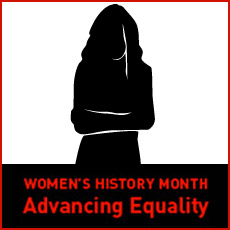Appeals Court Rules Lawsuit by Muslim Woman Forced to Remove Her Headscarf Can Proceed


When Souhair Khatib went to the Orange County Superior Court in Southern California in 2006, she had no idea that she was in for a humiliating and traumatic violation of her most closely held religious beliefs. Khatib came to court to seek an extension of her deadline for completing 30 days of community service relating to a misdemeanor. When she got there, an unexpected nightmare began — Khatib, who is a U.S. citizen, was taken into custody when her parole was revoked, forced to remove the hijab (headscarf) she wears as part of her Muslim religious faith, and to remain without it while in the holding facility and when appearing in open court. The experience of being stripped of her hijab was terrifying and violating.
In September 2007, Khatib and the ACLU of Southern California sued Orange County under the Religious Land Use and Institutionalized Persons Act (RLUIPA), a federal civil rights law, which, among other things, provides protection for the religious practices of people confined to institutions, including jails, prisons, and other correctional facilities such as pretrial detention facilities. The trial court threw out her case in July 2008, finding the courthouse holding facility was not subject to RLUIPA. Khatib appealed that ruling to the 9th Circuit Court of Appeals; a three-judge panel upheld the trial court's decision in May 2010. Khatib asked the 9th Circuit to rehear her case "en banc," and the court agreed, so a full, 11-judge panel of the 9th Circuit reheard the case last December.
Last week, the 11-member panel ruled that Khatib may proceed in her case arguing that county officials violated her rights under RLUIPA. This decision overturns the three-judge panel's finding, and asserts RLUIPA covers the courthouse holding facility where Khatib was forced to remove her headscarf.
The ruling is an important step forward in ending the discrimination and harassment that Muslim women too frequently experience when they participate in civic life. In its unanimous opinion, the court explained that having her head uncovered in public is a serious breach of Khatib's faith and a deeply humiliating experience.
The court further recognized that the civil rights protections don't apply only to prisons or jails where people are detained for an extended amount of time, but also to places where people are detained pretrial, like the courthouse holding facility. One judge wrote a separate opinion to underscore the fact that "A Muslim woman who must appear before strange men she doesn't know, with her hair and neck uncovered in a violation of her religious beliefs, may feel shame and distress. This is precisely the kind of 'mischief' [the civil rights law] was intended to remedy."
Unfortunately, this isn't the first time we've seen this kind of discrimination against Muslim women. In 2007, the ACLU and ACLU of Southern California represented Jameelah Medina, a Muslim woman who was forced to remove her hijab by the San Bernardino County Sheriff's Office after she was arrested for having an invalid train pass. Her case was settled in 2008 after the county agreed to implement a new policy accommodating the wearing of headscarves inside the county jail.
And last year, the ACLU and ACLU of Georgia brought a lawsuit against the Douglasville Municipal Court for arresting a Muslim woman, Lisa Valentine, after she refused to remove her hijab before entering the courtroom, where she was accompanying her nephew for a traffic hearing. After her arrest, she was forced to remove her hijab inside the holding facility and jail. This case is pending in district court.
We applaud the 9th Circuit court's most recent ruling and urge other judges, police officers, and government officials to pay close attention to the court's teachings. Muslim women should not have to fear that they will be targeted or stripped of their religious freedoms every time they walk into a courthouse, go to work, go into a government office, or otherwise participate as full and equal members of society.
The case will now return to trial court, where the ACLU of Southern California will prove the county violated Khatib's rights by forcing her to remove her hijab.
We're holding a month-long blog symposium on women's rights for Women's History Month. See all the blog posts here, and learn more about women's rights: Subscribe to our newsletter, , and .

